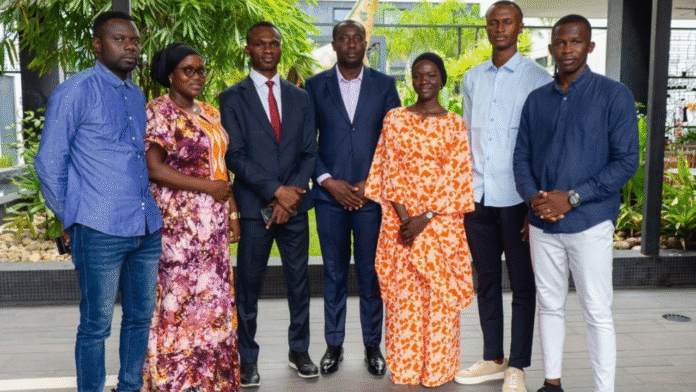Joint cybersecurity initiative with FBI boosts Ivorian agency’s technical readiness amid escalating threats
From 19 to 23 May 2025, Côte d’Ivoire’s National Agency for the Security of Information Systems (ANSSI) conducted an intensive cybercrime training program led by experts from the United States Federal Bureau of Investigation (FBI). This joint initiative marks a pivotal step in ANSSI’s long-term strategy to enhance cybersecurity capabilities, responding to the increasing sophistication of cyberthreats across the West African region.
This collaboration not only strengthens bilateral ties between Côte d’Ivoire and the United States but also signals a maturing cybersecurity posture across Africa, where threat actors are exploiting technological gaps and limited technical resources.
Strengthening Cybercrime Response Through Global Collaboration
FBI Brings Field Expertise to West Africa
Seven senior cybersecurity officers from ANSSI participated in the five-day training workshop held in Abidjan. Delivered by a seasoned team from the FBI, the curriculum focused on digital forensics, advanced cyber investigations, real-time threat intelligence, and the fundamentals of cybercriminal attribution.
The goal: empower Ivorian defenders to better detect, analyze, and respond to cybercrime and emerging threats, using proven methodologies from one of the world’s most experienced law enforcement agencies.
“This training allowed our teams to access FBI-proven methods and adapt them to local threats,” said Konan Kouassi, ANSSI’s Director of Strategic Development. “It is part of our ambition to build a resilient national cyber defense ecosystem.”
The hands-on nature of the sessions enabled participants to simulate real-world attacks using anonymized data, practicing threat hunting across compromised environments and learning how to navigate multi-jurisdictional investigations. This aligns with ANSSI’s broader mission: build capacity, deepen technical expertise, and bolster national cyber resilience.
Why This Matters Now
A Surge in Regional Cybercrime
According to the Interpol Africa Cyberthreat Assessment Report 2024, West Africa has seen a 38% year-on-year increase in cyber incidents targeting public institutions, financial services, and critical infrastructure. Côte d’Ivoire, being a regional tech and finance hub, is increasingly at risk.
The FBI training comes at a critical time. Local banks, telecom operators, and even healthcare providers have reported surges in phishing campaigns, ransomware attempts, and credential-harvesting attacks—many of which require specialized digital forensics to trace and mitigate.
“International cooperation is vital in the fight against transnational cybercrime,” stated Agent Rachel L. Davis, one of the FBI instructors. “We were impressed with ANSSI’s commitment to securing their digital future.”
Global Context: A Model for South-South and North-South Cooperation
This initiative mirrors growing trends in international cybersecurity cooperation, where emerging economies leverage global partnerships to fast-track security maturity. The FBI has previously trained cyber units in Jordan, the Philippines, and Ghana.
In MEA (Middle East and Africa), where skilled workforce shortages persist, such technical exchanges are critical. Regional agencies often lack access to cutting-edge techniques in digital evidence handling, malware reverse engineering, or cybercrime attribution—making them vulnerable to global threat actors exploiting unprepared systems.
Côte d’Ivoire’s move positions it as a potential regional cyber leader, joining the ranks of Nigeria, Kenya, and Egypt, all of which have launched ambitious cyber defense initiatives since 2022.
...Regional Relevance and Legal Frameworks
Data Protection and Sovereignty
Côte d’Ivoire’s Law No. 2013-450 on the Protection of Personal Data is now being tested by increasingly frequent breaches. ANSSI’s move to strengthen enforcement capabilities aligns with both national security goals and regional commitments under the African Union Convention on Cybersecurity and Personal Data Protection (Malabo Convention).
This training allows Côte d’Ivoire to not only detect but also prosecute complex cybercrimes more effectively especially those involving multiple jurisdictions, which require extensive coordination and legal preparedness.
Actionable Takeaways for Cybersecurity Leaders
- Invest in cross-border training to expose teams to global cybercrime strategies.
- Establish partnerships with law enforcement to facilitate data exchange and rapid response.
- Map internal incidents to MITRE ATT&CK to identify defensive gaps.
- Incorporate legal advisory into incident response planning, especially for international data cases.
- Update forensic toolkits and training to meet evolving technical standards.
- Simulate real-world breaches to test technical and procedural readiness.
- Benchmark practices against international frameworks like NIST and ISO 27037.
- Enable secure evidence handling and transfer for judicial integrity.
- Encourage public-private cooperation, particularly in threat intelligence sharing.
- Strengthen security awareness through mandatory internal programs (security awareness).
Conclusion: Building Bridges, Not Silos
Côte d’Ivoire’s ANSSI has taken a significant leap forward by collaborating with the FBI to fortify its cybercrime response capabilities. This training is more than symbolic it is foundational to a more resilient national and regional cybersecurity ecosystem. As threats grow in complexity and scope, building institutional knowledge through international cooperation will be essential. This initiative not only sets a precedent for West Africa but underscores the global nature of cybersecurity defense in 2025 and beyond.


